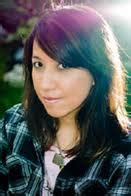A Quote by Annalee Newitz
In terms of fiction, there are a number of writers who are thinking about the future of the environment whose work complements mine. Kim Stanley Robinson's novel 2312 is a great example, as is Tobias Buckell's novel Arctic Rising.
Related Quotes
I don't impose political responsibilities on my fiction. The last thing I would ever want to do, for example, is write a novel that would appear to want to tell people what to think about the immigration debate, and I would never write a novel whose sole ambition was to give a "positive" view of immigrants. I'm for open borders, by the way - down with the nation state!
A good novel is something that challenges perception, that allows you to see the world anew through a different point of view - something that genre fiction doesn't do, although it sells more because it doesn't disturb people's innate sense of what a novel should be about. Often, people want characters to be nice, for example.
Tobias Buckell combines old world with new in his novel CRYSTAL RAIN. While the rich cultures, drawn in part from Caribbean history and lore, echo a familiar landscape, he brings it out of the Earth milieu and into a bold new universe where technology and tradition collide. I enjoyed his colorful characters and musical use of language; his voice is fresh and entirely readable.
If someone does learn about the world from reading a novel of mine, that makes me very happy. It's probably not what brings me into the novel in the first place - I usually am pulled in by some big question about the world and human nature that I'm not going to resolve in the course of the novel. But I'm very devoted to getting my facts straight.
I'm skeptical that the novel will be "reinvented." If you start thinking about a medical textbook or something, then, yes, I think that's ripe for reinvention. You can imagine animations of a beating heart. But I think the novel will thrive in its current form. That doesn't mean that there won't be new narrative inventions as well. But I don't think they'll displace the novel.
































